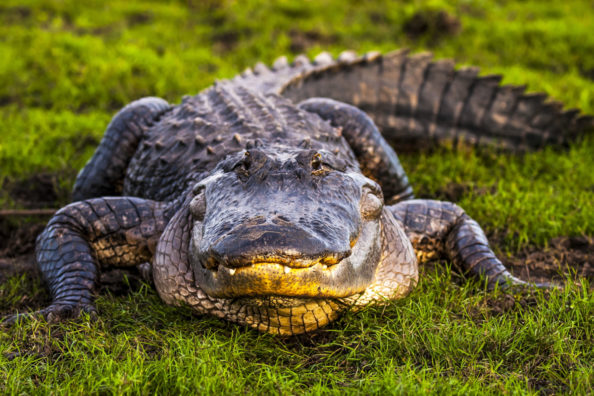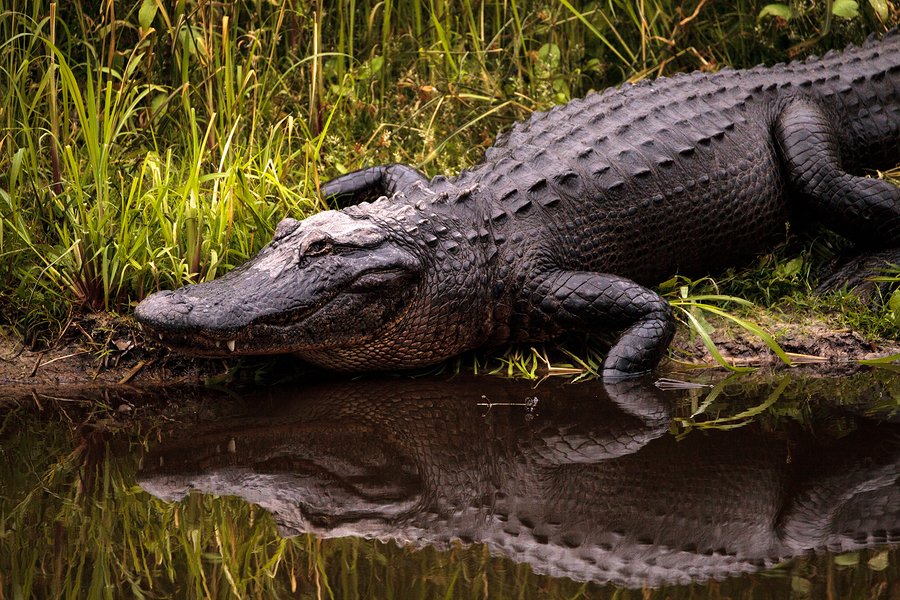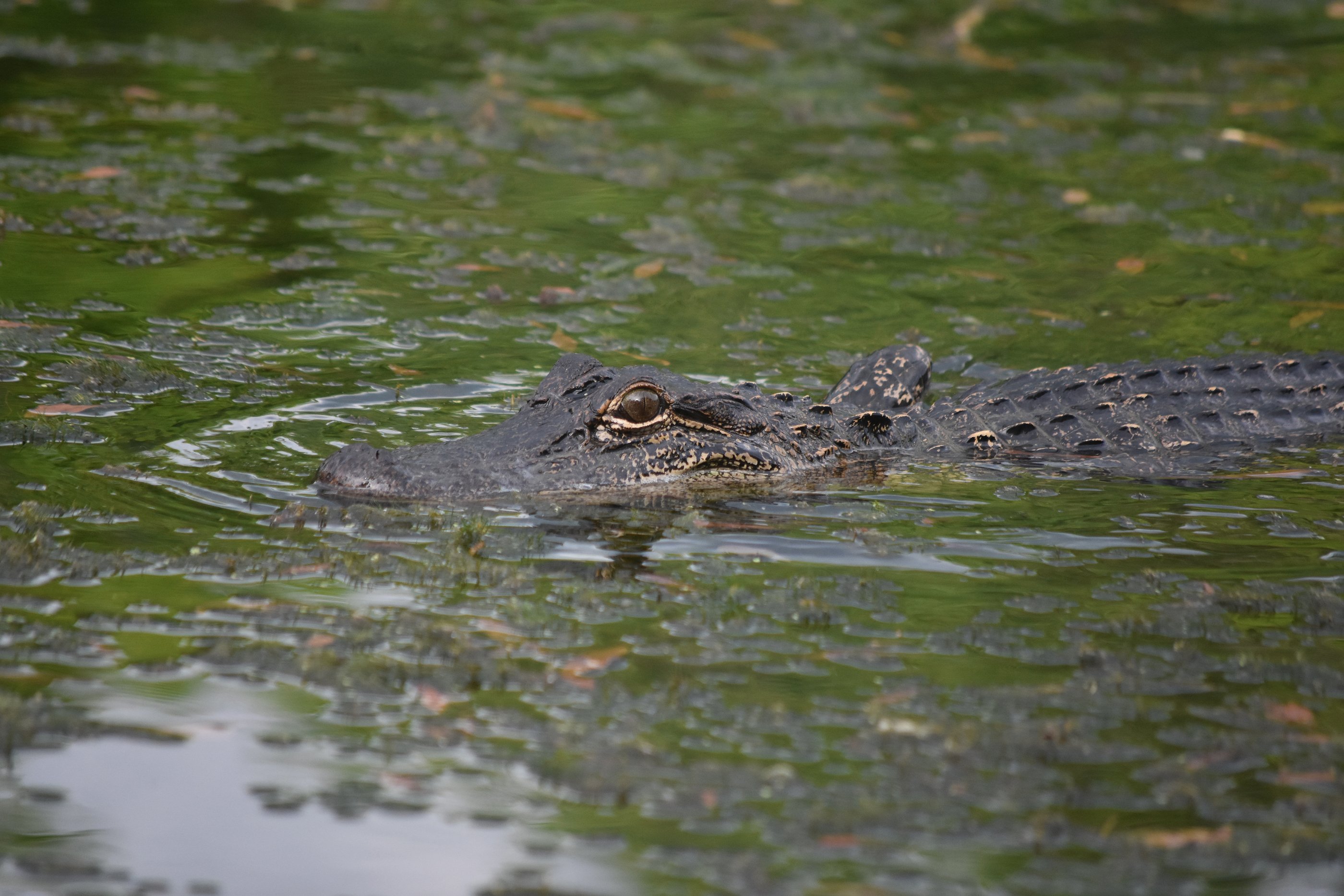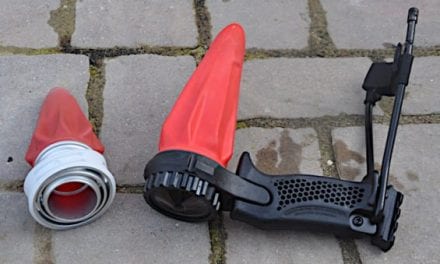
Looking for something new this season? It’s time to give alligator hunting a try!
Feeling adventurous this year and want to try hunting for something different? The American alligator may be just the challenge you’re looking for.
Alligator hunting season brings about a whole new set of challenges different than hunting a deer or turkey in the woods.
Here is all the general information you need to know about how to hunt them, hunting regulations, how to obtain a hunting license and what states have the best alligator populations.
How to hunt alligators
Hunting regulations vary from state to state, but there are a few different methods of alligator harvest that are popular.
One of the most popular is the hook and line setup, where you’re basically fishing for them. Depending on the state, the method is to either leave a setup overnight (similar to jug or trotline fishing) or fish conventionally them via rod and reel. Texas allows you to suspend a bait just above the water overnight, and then return to it the next day.
In Florida, alligator hunters using bait are not allowed to use hooks. Instead, you must use a technique known as “the wooden peg method” where you wrap a wooden peg in bait. Florida Fish and Wildlife recommends a two-inch section of broomstick handle. When the gator swallows the bait, the peg gets stuck in the back of their mouth and allows you to play the animal.
Some people prefer to use a snatch hook either attached to a fishing rod, or just a simple hand line of some kind to cast at and snag a gator in open water.
No matter which of these methods you use, you must coax the gator close to shore or the boat and then dispatch it. Some states, like Louisiana, allow you to use rifles, handguns or archery equipment. Florida, on the other hand, doesn’t allow you to use conventional firearms. Only archery gear, knives or specialty-made “bang sticks.”
Bang sticks are just what they sound like. It’s a long pole with a mechanism attached to the end called a powerhead. The powerhead is loaded up with a single firearm round. Popular calibers include .44 Magnum, .357, .223 and .410 slugs. Once loaded, you get the gator to the side of the boat and then quickly jab the animal in the back of the head with the bang stick. The stick quickly and safely fires the single round through the animal’s head, killing it quickly and humanely.
Another popular method is to attach a restraining line to a gator. This is sometimes done with archery gear, but a harpoon is one of the most popular methods. Attached to the harpoon in a length of line that is usually connected to a float of some kind. Then you let the gator tire himself out before you bring him in for the killing shot.
Keep in mind that once you dispatch the alligator, you aren’t done. These reptiles are surprisingly resilient and many a hunter has been surprised by a “dead” alligator that suddenly seems to come back to life. That’s why most alligator hunters, upon dealing a killing blow to the animal via firearm or bangstick, still tape the gator’s snout closed.

Most Departments of Wildlife also recommend you use a large knife to sever the animal’s spinal column right behind the head and pierce the brain with a knife to make sure the animal is truly dead.
One last method that is used less frequently is spot-and-stalk. Again, this is a method that isn’t legal in all states, but sneaking into position to get a shot on an alligator, especially when just their head is visible over the surface, is a real challenge.
Be careful with spot and stalks. We’re talking about shooting at a small target near the surface of the water. The possibility of a ricochet is real.
For that reason, it might be best to restrict this type of hunting to private lands where others aren’t around.
Also make sure you’re ready for the retrieval of the animal if it’s shot in the water. You’ll need heavy snatch hooks to snag and bring the body to the surface. Some hunters don’t like spot and stalks simply because there is a larger possibility of a lost animal with this method.
Whatever method you choose, make sure it is legal according to your chosen state’s alligator harvest program. Go over the application process carefully and make sure everyone in your hunting party is properly registered. In some cases, everyone one the boat may need to be a permit holder while other states allow others to help one license holder on their hunt. Also make sure you pay attention to boating regulations regarding transport of firearms if you using them.
Alligator hunting season in Florida
There are few stories of conservation success that can rival the alligator. Back in 1973, the American alligator found itself on the endangered species list. It was removed again only 14 years later. In Florida, the Florida Fish and Wildlife Commission estimates there are 1.3 million gators lurking in the state’s lakes, streams, ponds and swamps.
Currently the state allows hunting in 65 of 67 counties. You do have to apply for these permits. There are several phases of application from Phase I in mid May to Phase IV from late June onwards. Phase IV is considered the leftover phase, and alligator hunting permits are sold until they are gone.
Florida is the most expensive place to hunt gators. Licenses for alligator hunting in Florida are $272 for residents and $1,022 for non-residents. If you have a “Persons with Disabilities Hunting and Fishing License” there’s good news, the license/permit will only cost you $22.
Once you have an alligator hunting license, additional permits cost $62 each. You are allowed a bag limit of two gators per designated hunting zone.
When is alligator hunting season in Florida?
In 2021, Florida’s alligator hunting season runs from August 15 to November 1.
Hunting hours for alligators in Florida run from 5:00 p.m. to 10:00 a.m., so you’ll want to buy some good headlamps and be ready for a long but thrilling night. If you’ve never gone gator hunting before, we recommend hiring a guide to take you out. Though statewide alligator harvest success rates are good, it’s worth it to have an expert there to help.
Spears, spearguns, harpoons, gigs, bows and crossbows are all legal weapons according to the FWC. The only firearms allowed are bang sticks. Hunters can also use snares, snatch hooks, hand-held catch poles, baited wooden pegs, and fishing poles with baited wooden pegs, artificial lures or weighted treble hooks.
Alligator hunting season in Louisiana
The Magnolia State offers a lot of leeway in terms of hunting regulations for alligators. You can use archery gear, hook and line and firearms. The only exception is shotguns, which aren’t allowed. But it is legal to shoot a swimming alligator if you so choose to try it.
The cost of hunting gators in Louisiana is a little less expensive than some other states, but there is a downside. Louisiana Wildlife and Fisheries only issues alligator tags to hunters who either own their own private land or have permission to hunt someone else’s.
For residents, these tags cost $25 and for non-resident landowner licenses the cost is $150. If you don’t have access to land, you can always hire a guide. You do have to buy a different license for that, known as a “sport” license. The cost is $25 for residents and $150 for non-residents.
When is alligator hunting season in Louisiana?
Louisiana has split their state down the middle into zones when it comes to alligator hunting, and the dates fluctuate each year. Open season for the east zone starts on the last Wednesday of August and runs for 60 days after that. In similar fashion, the west zone opens the first Wednesday of September and runs for 60 days.
It is worth noting that alligator season in the Magnolia State is a strictly daytime-only affair. While you are allowed to leave baited hooks out overnight, you are NOT allowed to harvest alligators after dark.
Alligator hunting season in Georgia
Georgia is a lesser known state for alligator hunting, but there are approximately 250,000 of these ancient reptiles living in the Peach State according to the Georgia Department of Natural Resources.
You do have to apply for a drawing in order to hunt here. The deadline for applications is July 15.
This is a state that requires an alligator be captured and secured via a restraining line before being dispatched. Like Florida, they don’t allow the use of baited hooks, but you can use snatch hooks and wire snares to snag a big gator. For dispatching the animal, it’s handguns, bang sticks and archery gear only.
The state holds some giants. A 14-footer weighing over 700 pounds was taken there in 2019!
When is alligator hunting season in Georgia?
This year’s season opened on August 16 and closes October 7. Hunters are allowed a bag limit of one alligator and depending on the zone, it must meet a certain size restriction. For most of the zones the size limit is 48 inches, but for Zone 1A, alligators must be at least 96 inches.
In order to hunt alligators, you will need a Georgia hunting license and an alligator harvest permit. Hunting licenses are $15 for residents and $100 for non-residents. Permits are $75 for residents and $250 for non-residents.
Hunting hours for gators in Georgia are wide open, day or night, meaning you can hunt whenever it fits your schedule!
Alligator hunting in Alabama
Alabama is a little different than some other states when it comes to gator hunting in that only residents are allowed to hunt for them. Even then, you must enter a drawing for a tag and the registration for that closes in July. Hunters are allowed only one gator per year.
In similar fashion to other states, you must get a restraining line on the gator before it is dispatched. The difference here is hunters are limited to bang sticks .38 caliber or larger or shotguns. Alabama regulations dictate you can use shot no larger than #4.
When is alligator hunting season in Alabama?
Permit numbers are greatly limited in Alabama and depending on where your permit is, the season will vary greatly. But hours are always sunset to sunrise. For the southwest zone, the season is broken into two sections, from the second Thursday in August to the second Sunday. The second part is from the third Thursday in August until the third Sunday. These dates are the same for the coastal zone.
For the southeast zone, the season runs from the second Saturday in August until the first Monday of September. The west central zone also sees a season broken into two sections. The first runs from the second Thursday in August until the second Sunday. The second part runs from the third Thursday to the third Sunday of the same month.
For the highly coveted Lake Eufaula zone, which doles out only 20 permits a year, the opener is the Friday preceding the third Saturday in August and the season runs until the last Monday in September. For successful applicants in Lake Eufaula, we should note this is the only zone in Alabama with a size limit, and that limit is eight feet.
Mississippi alligator hunting
Mississippi doesn’t dole out a huge number of permits for gator hunting, but there are still some giants to be found there. The state only allows snatch hooks, snares, harpoons and bowfishing equipment. The use of baited hooks is not legal.
For dispatching gators, only bangsticks and shotguns are legal. In order to hunt gators in Mississippi you will need an alligator hunting license, which costs $25 and a possession permit. These permits are $100 for residents and $200 for non-residents. The drawing for these permits happens in mid-summer like many other states.
Mississippi has a legal size limit of at least four feet for alligators and you are allowed two a season, however only one gator can exceed the seven foot mark.
When is alligator hunting season in Mississippi?

We can appreciate a state that keeps their season dates simple and to the point. Mississippi’s alligator season runs from August 27 to September 6 for public lands and August 27 to September 20 for private lands. So, hunters with private land have a slight edge on those out hunting on public waters.
However, only one gator can exceed the seven foot mark.
South Carolina alligator hunting
The Palmetto State isn’t typically a state one thinks of for gator hunting. It is a much tougher state to get a permit for, but the good news is that through multiple applications you can build preference points to increase your odds of getting one in the future. It’s kind of like elk permits for many other states, only for giant, prehistoric reptiles!
You will need a South Carolina hunting license and it’s an additional $100 for an alligator permit. Non-residents also need to pay a non-resident fee of $200 in addition to those costs.
Carolina’s legal methods of take are simple. Secure the animal via restraining line and dispatch via handgun or bangstick. South Carolina does not allow the use of baited hooks at this time.
When is alligator hunting in South Carolina?
Another relatively simple season to remember, South Carolina’s alligator hunting runs in two sections. From noon September 11 to noon October 9, 2021. The bag limit is one animal per permit. It’s worth noting that neighboring North Carolina has mulled over a season, but their first season only doled out 20 permits in 2018.
Texas alligator hunting
The Lone Star State has plenty of gators to go around. Hunters are required to have a resident or non-resident hunting license. Texas also requires hunters to get a CITES Tag (Convention on International Trade in Endangered Species) Tag. The state divides seasons by “core” and “non-core” counties. There are some interesting wrinkles to the regulations, so pay attention to how Texas Parks and Wildlife classifies the county you wish to hunt.
Hunters in Texas can use hook and line setups and can set lines out overnight. However, these lines must be checked daily. Gigs, snares and archery gear are all legal. As expected, Texas is wide open on the firearms you can use. The only exception is they don’t allow rimfire for gators (We wouldn’t recommend it for a gator’s thick hide anyway!).
Also legal for use are airguns and bowguns (arrow guns), although we’re not sure anyone has used either for gators before.
When is alligator hunting in Texas?
This depends on whether your alligator hunt is in a core or non-core area, and there are some specifics in place that can make things even more confusing. Core counties see traditional season dates in line with other southern states. The season runs from September 10-30. These are also the most common places to find alligators.
Non-core counties see open season run a more unusual date range, from April 1 to June 30. Hunters are only allowed one alligator in these areas and you also can’t harvest a gator where one was taken the previous September.
Hunters who harvest an alligator in a non-core area are also subject to mandatory check-in. TPWD also requires these hunters to attach an alligator hide tag report and pay a $21 hide tag fee.
Alligators are a challenging, dangerous and exciting species to pursue. And a big one will fill your freezer to bursting with delicious meat easily. Good luck to all the alligator hunters heading out this season!
For more outdoor content from Travis Smola, be sure to follow him on Twitter and check out his Geocaching and Outdoors with Travis YouTube channels.
NEXT: 5 WAYS TO ACTUALLY MAKE A DIFFERENCE IN CONSERVATION THIS HUNTING SEASON
WATCH
The post Alligator Hunting Season: Where, When, and How to Hunt Gators in the American South appeared first on Wide Open Spaces.















